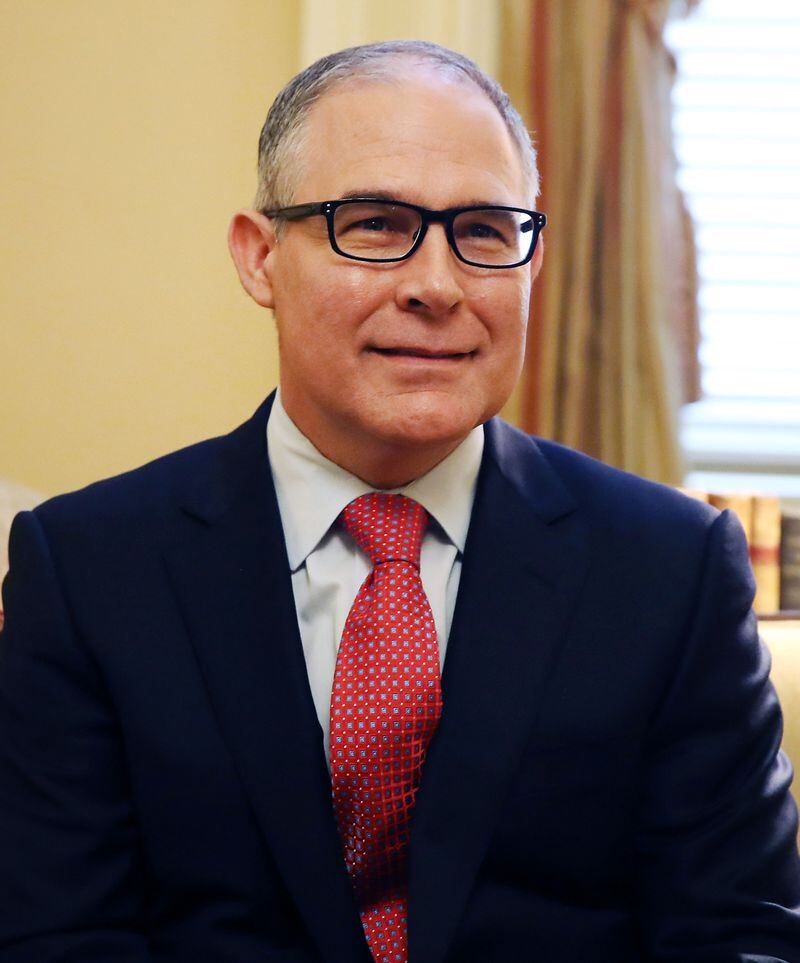Highlighting what's at stake in president-elect Donald Trump's plan to remake the EPA by putting a climate change denier in charge, the federal agency issued a report last week showing how far it's come in reducing toxic chemicals from the air.
Over a 10-year period, industrial facilities' air emissions of toxic chemicals decreased by more than half – both nationwide and in Georgia, according to the U.S. Environmental Protection Agency's annual Toxics Release Inventory National Analysis, which was released Thursday.
The report "shows action by EPA, state and tribal regulators and the regulated community has helped dramatically lower toxic air emissions over the past 10 years," Jim Jones, an EPA assistant administrator over chemical safety and pollution prevention, said in a news release.
The EPA pointed to the shift away from coal energy, as well as companies' installing emission control technologies. Last year, facilities included in the analysis managed 26 billion pounds of chemical waste, only 8 percent of which was released into the environment, the report said. The EPA cited improved waste management practices, such as recycling, energy recovery and treatment.
Nearly 22,000 facilities submitted data for 2015, a requirement under the Pollution Prevention Act.
The analysis comes against the backdrop of Trump's pending selection to head the EPA: Oklahoma Attorney General Scott Pruitt, an ally of the fossil fuel industry who has repeatedly sued the EPA to combat environmental regulations. His Senate confirmation hearing begins at 10 a.m. today.
Pruitt is one of several political figures tapped by Trump to lead agencies that they fundamentally oppose. He describes himself as "a leading advocate against the EPA's activist agenda." As attorney general for an oil- and natural gas-rich state, he received campaign donations from the energy industry and once colluded with an Oklahoma oil and gas company to weaken EPA oversight, The New York Times reported.
Credit: Johnny Edwards
Credit: Johnny Edwards
Both Trump and Pruitt have criticized President Barack Obama's environmental policies and efforts to combat climate change, particularly the Clean Power Plan. Trump was quoted earlier this month, in a statement from his transition team, saying that Pruitt will "restore the EPA’s essential mission of keeping our air and our water clean and safe.
"For too long," the statement from Trump said, "the Environmental Protection Agency has spent taxpayer dollars on an out-of-control anti-energy agenda that has destroyed millions of jobs, while also undermining our incredible farmers and many other businesses and industries at every turn."
The EPA report seemed designed to bolster the same environmental legacy that Trump seeks to unravel.
The analysis showed that from 2005 to 2015, industrial facilities spewed 56 percent less toxic chemicals into the air. In Georgia, chemical releases fell by 59 percent.
The EPA reported significantly lower air releases of hydrochloric acid, sulfuric acid, toluene and mercury – all linked to nervous system damage and respiratory irritation.
Coal- and oil-fired electric utilities accounted for more than 90 percent of the reductions in hydrochloric acid, sulfuric acid and mercury from 2005 to 2015, the EPA reported.
About the Author








